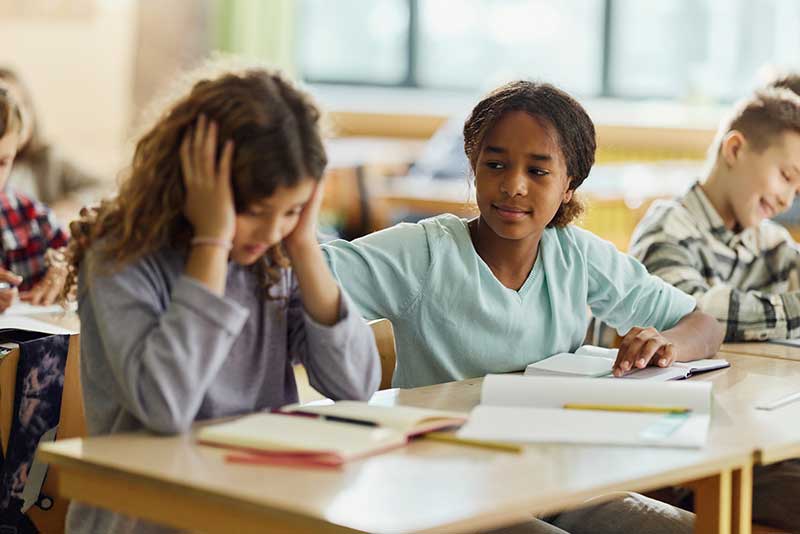Learning Disabilities
This unit helps students understand how we learn, and that learning disabilities are brain-based and result in one or more areas of significant challenge. Students learn that someone who has a learning disability can use a variety of useful strategies, techniques and technology to assist in learning within their area of challenge and in daily life.
Key themes:
- Having a learning disability is among the many traits that contribute to making a person the individual that he or she is.
- All of us have strengths and challenges in learning. A strength for one person may be a challenge for another person. Each individual with a learning disability is unique, with a combination of strengths and challenges.
- People develop strategies to accommodate for their challenges by using areas of strength, and may use specific techniques or assistive technology to accomplish their learning goals.
- People with learning disabilities might feel frustrated at times when learning, but it can feel especially rewarding when a learning goal is accomplished, too.
- People with learning disabilities do lots of things like play sports and participate in other activities, sometimes with accommodations.
Information is presented about the range of strengths and challenges of people with learning disabilities, and suggestions for how to be inclusive and an ally are covered. Students learn that although learning disabilities may affect the way someone learns and interacts, they still want to be included and to have friends.

I have a little sister, and we like to race each other on our bikes. But I have long legs, and she has short legs. So when we race each other, I give her a head start. I don't think she's getting an advantage. It's just that if we both start at the same time, then it would be unfair. And it doesn't mean that I'm better than her, it's just that I have long legs and she doesn't. It's like that with Learning Disabilities. Everyone is good at different things, and we should all get help with the things that are hard for us."
— 4th grade student
FLEXIBLE PROGRAMMING
Program implementation is flexible and can be adapted for a remote, hybrid or in-person classroom. A typical 1 ½ to 2-hour session for fourth graders includes: an informational video, up to three hands-on activities and a talk by a speaker with a learning disability, who describes their life experiences and answers students’ questions. Recommended grade level: 4th grade.
Sample Questions from Fourth Graders
- When was it hard when you had to deal with your disability?
- Have you ever had a teacher who did not understand?
- Have you ever had someone who decided not to be your friend after they learned that you had dyslexia?
- How many of your family members are dyslexic?
- Is it still hard for you to read and spell words?
- Have you published any books and what are they named?
- When did you graduate from college?
